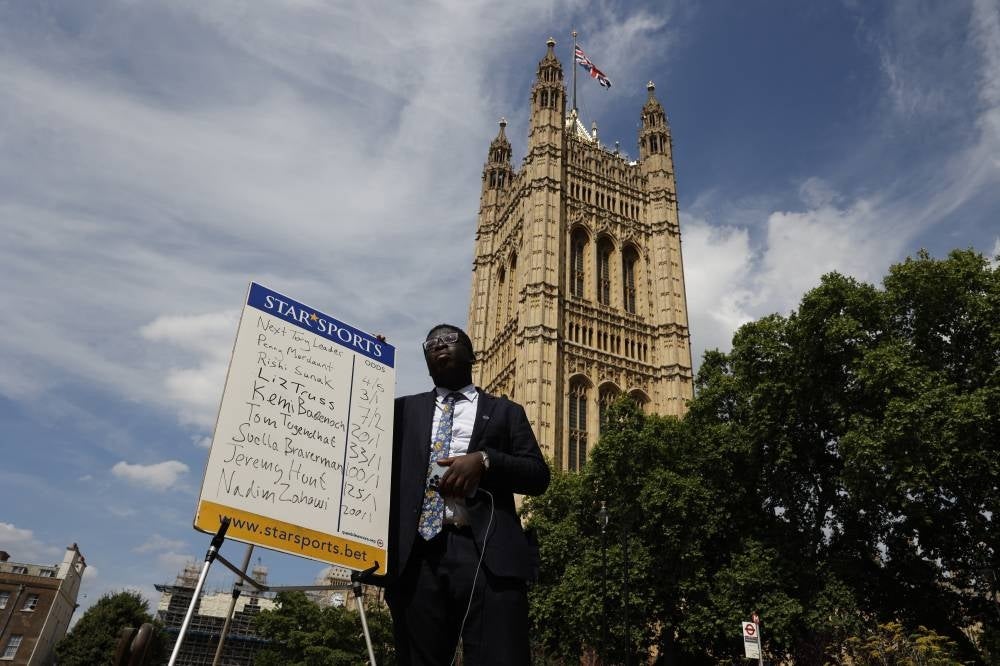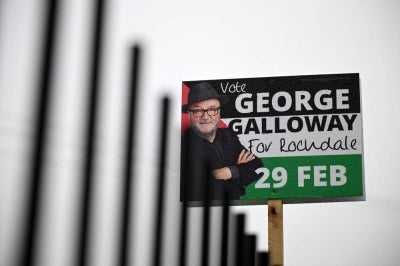How the UK’s Conservative Party elections expose the weaknesses of the Westminster system

I took a peek into the British leadership race, and this video by Penny Mordaunt was one of the first videos I saw.
Seconds into the video, I couldn’t help but think of this classic clip.
It then struck me how politics has become a little like a parody of a parody.
One could go on and on about that, but today I thought I’d look at some key elements of the Westminster system that Malaysia inherited from the UK, and how it seems to cause extremely detrimental problems to both nations.
I know it’s somewhat bad form to criticise a system without offering detailed alternatives (that is perhaps more of a book length project), but perhaps there is some small value on identifying exactly what elements would most need changing.
The recent event that triggered the writing of this article is of course the British Conservative Party elections, which formally began this last 12th of July.
Simply put, these elections will determine the next leader of the Conservative Party (colloquially known as the Tories).
The Tories control a simple majority in the British House of Commons, holding 358 out of 650 seats (as a noteworthy aside, the UK has 650 parliamentary seats for 67 million citizens, while Malaysia has only 222 seats for 32 million citizens).
This being the case, under the Westminster system, the next leader of the Tories will be the next Prime Minister of the UK - the most powerful political leader in the land.
The voting members of the Conservative party will thus be the final determinant of who that PM will be - all 124,000 of them, at last count in 2018.
Now, having 124,000 people ultimately decide the leadership of 67 million people is a sufficiently odious indictment of a completely broken and dysfunctional system.
But the problem in the UK is actually a few orders of magnitude worse than that.
Wikipedia describes the preliminary process of the Conservative Party elections:
“Under the new rules for the 2022 contest, in the first round, on July 13, candidates will require 30 votes from MPs to avoid dropping out. In each subsequent round, from July 14 onwards, the candidate with the fewest votes will be eliminated.
“Finally, when only two candidates remain, Conservative Party members will vote to decide between them on a one-member-one-vote basis. The candidate who receives the most votes wins the contest.”
So before the already small number of 124,000 people vote who will lead the 67 million people, some 358 people will first decide who the 124,000 people can or cannot vote for.
This reminded me of a talk by Lawrence Lessig where he shares a famous quote by 19th century American political warlord William Tweed: “I don’t care who does the electing, as long I get to do the nominating.”
Lessig argues that only 0.02 per cent of Americans really determine who is in power.
In the current British example, 358 people will determine who 124,000 people can vote for, to lead 67 million people. 358 out of 67 million is roughly 0.0005 per cent.
This farcical parody of democracy is of course bad enough in and of itself. To really understand the damage this does to a nation’s democracy however, we should dig a little deeper into how this dynamic affects the process, and governance in general.
I suppose somewhat to their ‘credit’, the British have at least ‘formalised’ patronage in a mildly more transparent way. In other words, they don’t hide how they mock democracy.
A crude way to summarise the most important implication of this system is: this makes clear whose ass you have to kiss in order to gain power.
As these 358 people choose the final two candidates, they are under absolutely zero obligation to consult with the people who voted them into power in any way, shape, or form. I doubt there will be any conversation with their constituents at all.
You don’t start by thinking of how to please the voters; and you don’t even start by thinking of how to please party members (which would honestly be bad enough).
You start by thinking how to please your 357 fellow MPs - the most elite of the political elite.
If you can’t win the support of a good chunk of these 357 individuals, then your campaign to become PM is sunk before it begins.
One has to ask oneself: If you were one of these 358 MPs, exactly what currency would you seek out in exchange for political support?
In Malaysia, one expects the answer to be crude and simple. It would not be surprising to find a similar situation even in the UK.
Ultimately, one can expect a great deal of horse trading and exchanges of patronage and favours, at the very least. Promises will be made, the vast majority of which I suspect are not quite in the genuine full interest of the British people.
This brings into question the entire concept of what people within a Westminster system actually vote for.
The ‘standard’ answer is that we vote for a party that professes to believe in a certain set of policies and principles; and that we vote for this party and MP in the belief that should their party come into power, that party as a whole would implement the policies and principles they profess.
If this is true, then why does it matter which individual leads the party? How is it that the current leadership tussle within the Conservative Party also features debates and divergences with regards to policy?
If all this is still up in the air and up for grabs, then (if you’ll pardon my French), what the heck did I actually vote for?
The question that follows that question is one of the most common today in democracies all over the world: did my vote even matter?
Malaysia of course does not follow exactly the same system as the UK. Party leadership contests are generally a little less procedurally complex.
The essential problem remains though - during party elections, politicians are beholden to a very select, narrow subsection of society which generally represents a very small proportion of the population as a whole.
For example, Umno claims to have some three million members; but those members do not directly elect their leaders. Instead, only some 146,500 members are selected by divisions to vote for top positions.
In the past, this number was vastly smaller, at one point being only around 2,000 delegates.
In summary, I feel we need to be deeply aware of what a mockery our political systems make of the concept of democracy.
These systems have been manipulated, re-engineered, and corrupted over time by people in power to benefit themselves, rather than benefit the people.
Any serious long term plans to rehabilitate our democracies require a well thought out solution to these problems, and a tightly bonded group of people committed to making those solutions reality.
The absence of these will condemn us to a near eternity of being swept up by the corrupt gravities of a political elite.
NATHANIEL TAN works with Projek #BangsaMalaysia. Twitter: @NatAsasi, Email: nat@engage.my. #BangsaMalaysia #NextGenDemocracy.
The views expressed in this article are the author's own and do not necessarily reflect those of Sinar Daily.
Download Sinar Daily application.Click Here!















